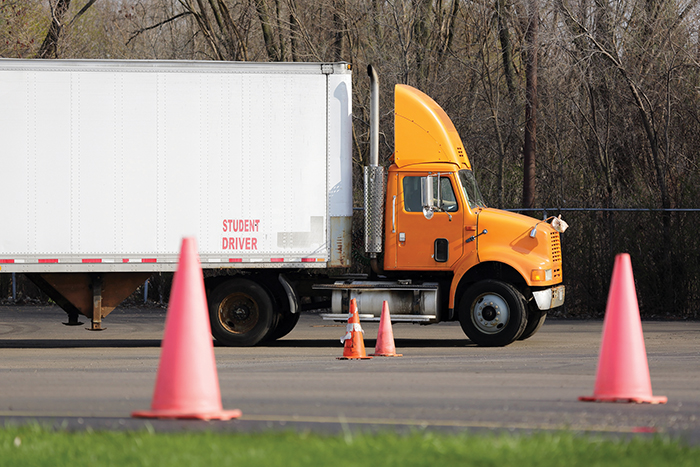BCTA training grant targets driver shortage
The B.C. Trucking Association (BCTA) is urging members to take advantage of Mandatory Entry-Level Training (MELT) grants to help source new truck drivers in the province.
A program administered by the association provides up to $15,000 for tuition and training for an eligible candidate, along with a maximum of $3,000 for expenses.
“This removes the financial cost for member companies and allows them to focus on increasing operational outputs and revenue,” BCTA policy analyst Samira Hosseina said during a webinar.

The program also helps member schools by providing student enrolment, generates revenue for them through government-backed tuition funding, and reinforces industry standards and driver training, she added.
Funding is provided by the Government of B.C. through the Canada-B.C. Workforce Development Agreement.
Almost 4,000 jobs in B.C.
Currently there are more than 21,000 truck driver job postings in the country, of which 18% or almost 4,000 are in B.C., Hosseina noted.
To tap into the grants, British Columbia residents who want to pursue careers as Class 1 drivers must first obtain a letter of support — or an intent to hire — from a BCTA member company that will employ them after training and licensing is complete. But the company is not obliged to hire them, Hosseina said.
Candidates must be more than 16 years old (although they can’t earn a Class 1 licence until they are 19); be working 30 hours or less a week; have a social insurance number; be a Canadian citizen, permanent resident or refugee; and hold a valid driver’s licence and Class 1 learner’s permit.
After the candidate meets all the eligibility criteria, the member company forwards the application to the BCTA. The association reviews and confirms the application, and enrols the student into a member MELT driving school. BCTA then pays the school seven days after the training begins.
$3,000 expenses covered
When the candidate completes training, passes the road test, and begins their job, they can submit receipts for up to $3,000 in expenses. These include transportation, accommodation, food, training gear, ICBC road test examination fee, and childcare.
The program removes the debt burden from students interested in entering the trucking industry and the financial cost for member companies, Hosseina said. She added that a candidate’s school preferences are noted, but BCTA makes the final enrolment decision.
Have your say
This is a moderated forum. Comments will no longer be published unless they are accompanied by a first and last name and a verifiable email address. (Today's Trucking will not publish or share the email address.) Profane language and content deemed to be libelous, racist, or threatening in nature will not be published under any circumstances.
Hey…just got my British Columbia Commercial learner’s Class 1 Endorsement 15.
I meet all the requirements of the MELT class 1 program. Minus the funding.
I’m 51 yrs Young! Female! Last few yrs have been challenging. I’ve been unemployed on social assistance after some major unexpected life changes. Burnt out from being a care aide for all my adult life once COVD hit…I’m highly motivated for change in my life and know it’s up to me. With in one year I will have a CDL class 1
Just don’t know who I’ll be employed by in order to pay the loan off for the MELT program I’ll be enrolled in, hopefully asap.
B C is doing a much better job than ont but taxpapers $ should paid back from a tax on the industry